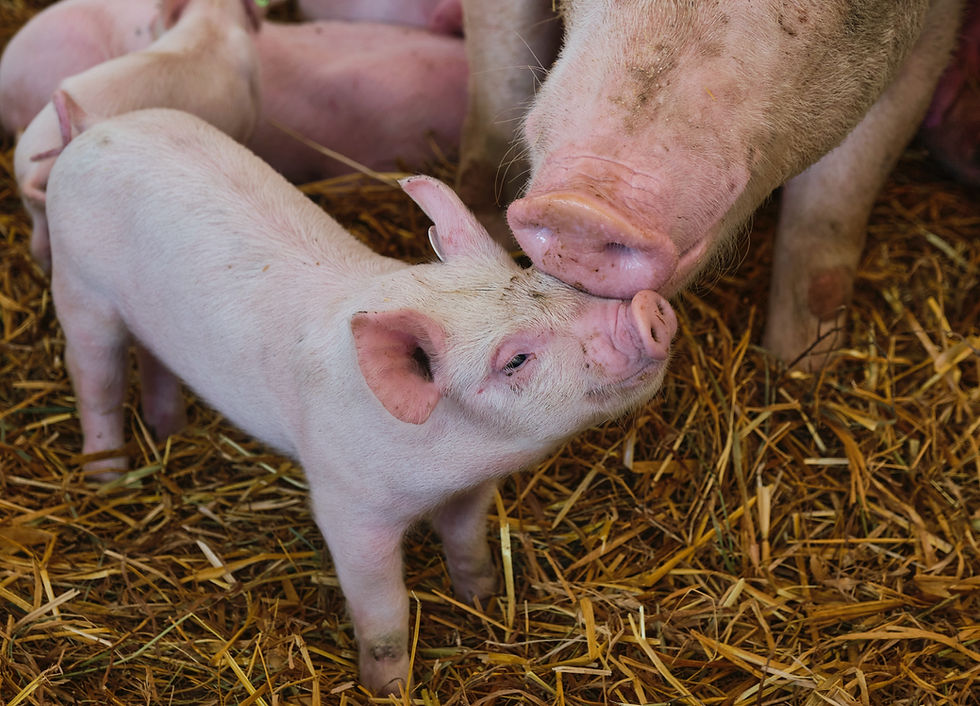Unlocking Happiness: How Your Gut Health Holds the Key to Overcoming Depression
- SMART Vegan
- Jun 18, 2025
- 4 min read
Updated: Jun 30, 2025
Depression is often seen as a complex mental health challenge linked to our thoughts, feelings, and life experiences. But what if I told you that your gut health plays a crucial role in this equation? Modern research reveals that the health of our gut could be a significant factor in combating depression. The saying "you are what you eat" takes on an important meaning as we uncover how gut bacteria and diet dramatically influence mental health. If you've been part of our Iron Man Fast, then you've heard us teach and preach on this very subject countless times. In this post, we'll delve into the connection between gut health and depression and share actionable strategies to improve your well-being.
The Gut-Brain Connection & Depression
The gut and brain are interconnected through a system known as the gut-brain axis. This connection facilitates ongoing communication between the two, highlighting their dependency on one another. Our gut houses trillions of microorganisms, collectively known as the gut microbiome. Studies have shown that 70% of our immune system resides in the gut, which influences not only our physical health but also our mental state.
For instance, a study published in the journal Psychosomatic Medicine found that individuals with depression often show changes in their gut microbiome. A disrupted balance can raise inflammation levels, which has been directly linked to depressive symptoms. It's fascinating to note that about 90% of serotonin, a key neurotransmitter that stabilizes mood, is produced in the gut. This emphasizes how crucial it is to maintain good gut health for our emotional well-being.
Nutritional Choices Matter
Given the clear link between gut health and mental wellness, making smart nutritional choices is vital. A balanced diet filled with whole foods, fiber, and probiotics can help cultivate a healthy microbiome. Research from Frontiers in Public Health indicates that people who consume a diet rich in fruits, vegetables, whole grains, and legumes experience lower rates of depression.
The Role of Prebiotics and Probiotics
Prebiotics and probiotics are essential for a healthy gut. Prebiotics are non-digestible food components that nurture beneficial gut bacteria. Foods like garlic, onions, and bananas provide an abundant source of prebiotics. Imagine adding a banana and a dollop of yogurt to your morning smoothie; not only do you create a nutritious breakfast, but you also fuel your gut.
Probiotics are live microorganisms that can help balance the gut microbiome. Research in Nature Reviews reveals that regular consumption of probiotics, especially those found in fermented foods, can reduce the symptoms of anxiety and depression by about 50%. Incorporating these elements into your diet could serve as an effective approach to enhancing your mental health.
The Impact of Sugar and Processed Foods
A diet high in sugar and processed foods can severely disrupt gut health and, subsequently, mental well-being. These foods often lead to an imbalance in gut bacteria, increased inflammation, and a higher likelihood of depression. A study published in the American Journal of Psychiatry found that individuals who frequently consumed refined sugars were over 30% more likely to experience depressive symptoms.
Additionally, sugar causes spikes and crashes in blood sugar, resulting in cravings and mood swings. By switching to whole, nutrient-dense foods, you take a significant step toward protecting both your gut and your mind. Even simple swaps—like replacing a candy bar with a handful of nuts—can elevate your energy and stabilize your mood.
Stress and Gut Health
Stress is an unavoidable aspect of life, but it can significantly impact gut health. When stressed, the balance of bacteria in our gut can be disturbed, potentially leading to digestive problems and exacerbating anxiety and depression. Research has shown that individuals with chronic stress are more likely to develop gastrointestinal issues, creating a cycle of emotional distress.
Incorporating stress-reducing techniques such as mindfulness, regular exercise, or yoga can mitigate stress and its detrimental effects on gut health. For example, a study in JAMA Psychiatry showed that those who practiced mindfulness meditation reported a 30% reduction in stress levels. By improving blood flow to the gut through these activities, you foster a healthier microbiome, ultimately contributing to a happier mindset.
Lifestyle Changes to Consider
Adopting habits that boost gut health may significantly uplift your mental state. Here are a few straightforward actions to consider:
Stay Hydrated: Drinking enough water is crucial for both gut health and overall wellness.
Include More Fiber: Aim for a diverse array of fibers from fruits, vegetables, whole grains, and legumes to nourish your gut microbiome.
Limit Alcohol: Drinking excessive amounts of alcohol can disturb gut flora and provoke imbalances affecting mental well-being.
Prioritize Restful Sleep: Quality sleep supports gut health as it’s during sleep that the gut repairs and replenishes itself.
Engage in Regular Exercise: Incorporating physical activity into your routine can boost mood through endorphin release while enhancing gut health at the same time.
The Path to Happiness
Taking a comprehensive approach to mental health means acknowledging the significant influence of gut health on our emotional state. By understanding the gut-brain connection and making informed dietary choices, we can open up healthy pathways towards happiness and resilience against depression.
Start small—maybe add some prebiotics and probiotics to your meals, cut back on processed foods, or find effective ways to reduce stress. As you nurture your gut, you might notice that your mood improves, your thoughts become clearer, and happiness becomes easier to grasp.
At the end of the day, the journey toward enhanced mental health truly begins in your gut. What you consume plays a critical role in shaping your overall well-being. Take that first step today, and you may unlock a vibrant, joyful life waiting for you!





Comments